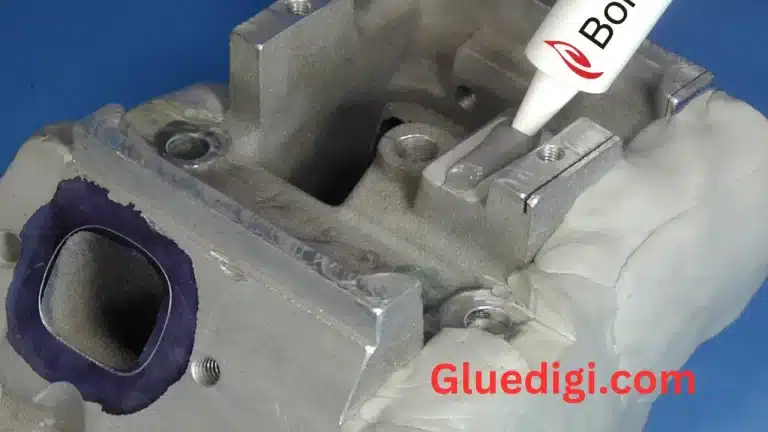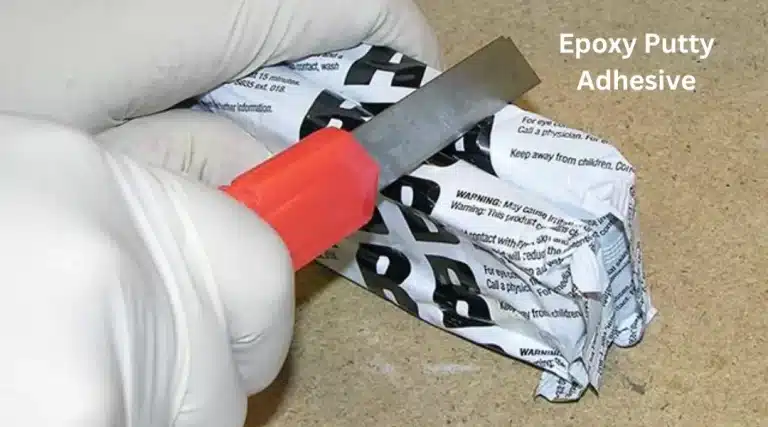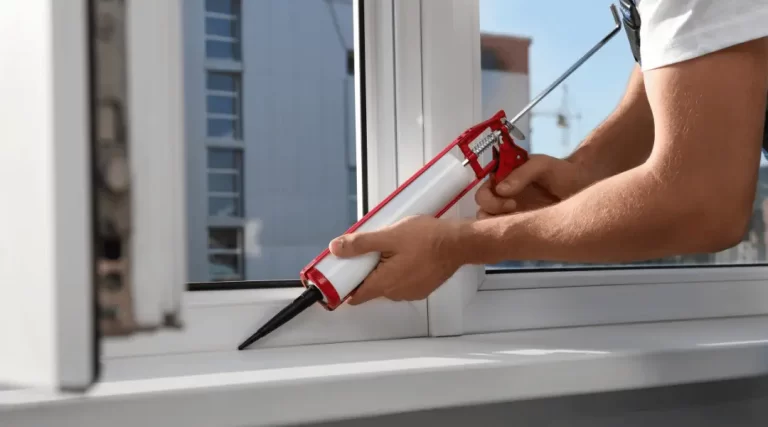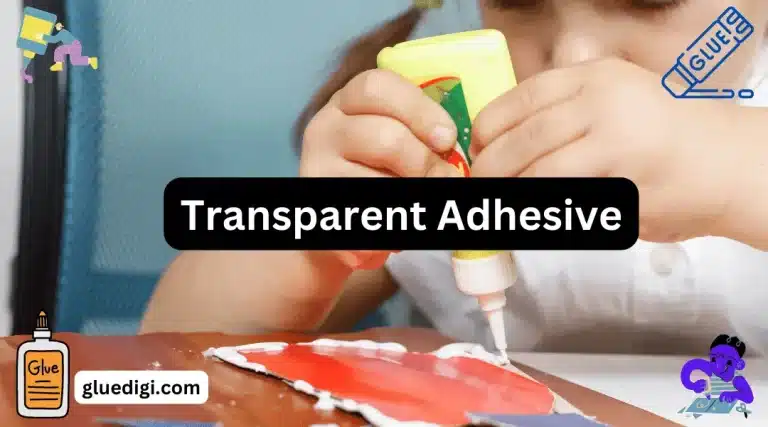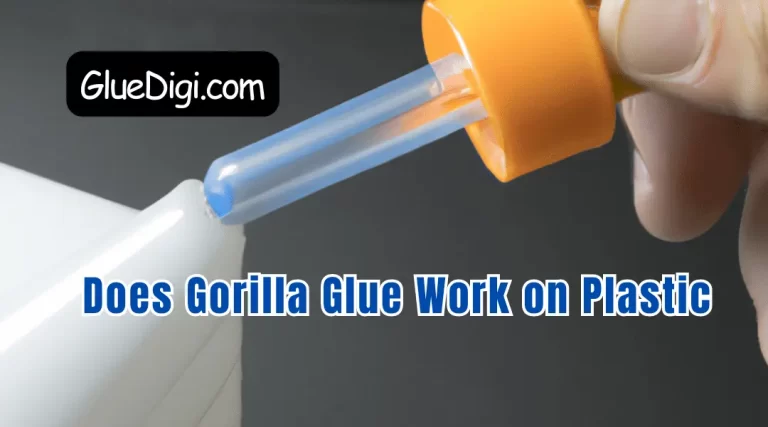Super glue is a handy tool that can fix almost anything, from broken ceramics to ripped leather. However, one of the biggest concerns people have Does Super Glue Dry Clear?or Not . If you’re wondering the same thing, then this blog post is for you!
Super glue, also known as cyanoacrylate adhesive, is a fast-acting adhesive that can bond almost any surface together in seconds. It’s no wonder that it’s a popular choice among DIY enthusiasts and professionals alike. However, one of the most common questions people have when using super glue is whether super glue dries clear or not.
Let’s dive into this peculiar topic and uncover the taste, health risks, and even unique uses of glue beyond its intended purpose.
The answer to this question is not as straightforward as you might think. While some super glues dry clear, others may leave a white residue, making it difficult to achieve a seamless finish. In this blog post, we’ll take a closer look at the factors that affect how super glue dries and whether it dries clear or not. We’ll also provide tips on how to ensure a clear finish when using super glue, so read on to find out more!
How Does Super Glue Work?
Super glue works by reacting with moisture in the air. When the adhesive comes into contact with moisture, it starts to polymerize and form a strong bond between surfaces. The polymerization process happens quickly, which is why super glue is known for its quick-drying properties.
The adhesive works well on a variety of surfaces, including metal, plastic, wood, ceramic, and glass. Its strong bonding properties make it ideal for repairing broken objects, filling gaps, and attaching two surfaces together.
Now that we know how super glue works, let’s explore whether it dries clear or not.
Does Super Glue Dry Clear?
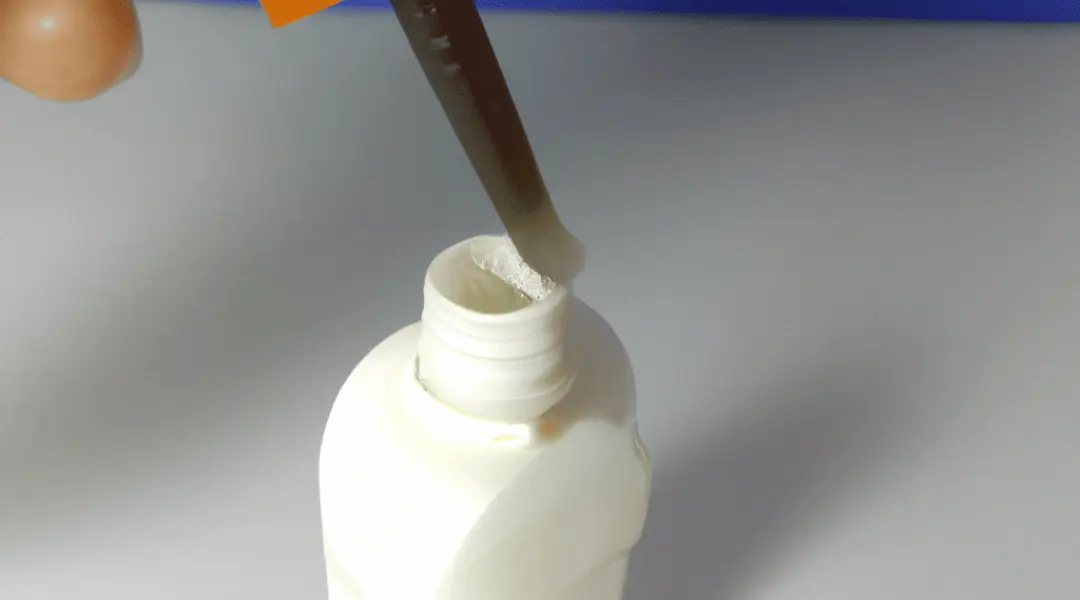
Yes, super glue dries clear. However, the clarity of the dried adhesive can vary depending on the thickness of the glue, the type of surface, and the amount of adhesive applied.
When super glue is applied thinly and evenly, it dries clear and transparent. This is because the adhesive fills in the gaps between surfaces and forms a thin layer that is almost invisible to the naked eye. However, if too much adhesive is applied or if it is applied unevenly, it can dry with a white or cloudy appearance.
The type of surface also affects the clarity of the dried adhesive. Some surfaces, such as wood or porous materials, can absorb the adhesive and cause it to dry with a cloudy appearance. On the other hand, non-porous surfaces such as glass or metal, allow the adhesive to form a clear bond.
Tips for Using Super Glue
When using super glue, it is important to follow a few tips to ensure that it dries clear and forms a strong bond. Here are some tips to keep in mind:
- Apply the adhesive thinly and evenly to avoid excess glue.
- Use a small amount of adhesive to avoid dripping or running.
- Clean and dry the surfaces before applying the adhesive.
- Hold the surfaces firmly together for at least 30 seconds to allow the adhesive to set.
- Avoid touching the glued surfaces until the adhesive has fully cured.
Types of Super Glue
There are several types of super glue available in the market, each with its unique properties and uses. Some of the common types include:
Regular super glue:
This is the most common type of super glue and is ideal for bonding non-porous surfaces.
Gel super glue:
This type of super glue is thicker than regular glue and is ideal for filling gaps and vertical surfaces.
High-temperature super glue:
This type of super glue can withstand high temperatures and is ideal for bonding metals and ceramics.
Quick-setting super glue:
This type of super glue dries within seconds and is ideal for quick repairs.
Advantages of Super Glue
Super glue has several advantages that make it a popular adhesive among users. Some of the advantages include:
Fast-drying:
Super glue dries very quickly, usually within seconds, making it a convenient choice for projects that require immediate bonding.
Versatile:
Super glue can bond almost any surface, including metals, plastics, ceramics, wood, and leather.
Easy to use:
Super glue comes in a small tube or bottle with a precision tip, making it easy to apply to small areas or hard-to-reach spots.
Cost-effective:
Super glue is an affordable adhesive option that can save you money on repairs and DIY projects.
Water-resistant:
Super glue creates a water-resistant bond, making it ideal for applications that involve exposure to water or moisture.
Clear finish:
Many types of super glue dry clear, making it a great option for projects that require a seamless finish.
Convenient size:
Super glue comes in small sizes, making it easy to carry around in a toolbox or pocket for quick repairs on-the-go.
Disadvantages of Super Glue
Despite its advantages, super glue also has a few disadvantages that users should be aware of. Some of the disadvantages include:
Brittle bond:
One of the major disadvantages of super glue is that it creates a brittle bond. While super glue can bond almost any surface, the bond is not very strong and can break easily when exposed to pressure or impact. This makes it unsuitable for applications that require a strong and durable bond.
Poor heat resistance:
Another drawback of super glue is its poor heat resistance. Super glue tends to break down and lose its bonding strength when exposed to high temperatures. This makes it unsuitable for applications that involve high heat or friction, such as automotive or industrial applications.
Limited gap filling ability:
Super glue works best when the surfaces being bonded are in close contact. It does not have good gap-filling properties, which means that it cannot be used to bond surfaces with gaps or uneven surfaces.
Skin bonding:
Super glue can bond skin together, which can be painful and potentially dangerous. It is important to avoid getting super glue on your skin or eyes, as it can cause irritation or even blindness.
Difficulty in undoing the bond:
Super glue creates a strong and permanent bond that can be difficult to undo. If you accidentally glue something together or need to undo a bond, it can be a difficult and time-consuming process.
Limited shelf life:
Super glue has a limited shelf life, meaning that it can lose its bonding strength over time. This makes it important to store super glue properly and use it before it expires.
Not suitable for all materials:
Super glue is not suitable for all materials. It may not bond well with certain plastics, rubber, or other materials, and may even damage them. It is important to check the manufacturer’s instructions before using super glue on any material.
Safety Precautions when Using Super Glue
When using super glue, it is important to follow certain safety precautions to avoid any accidents or injuries. Here are some safety precautions to keep in mind:
- Wear gloves to protect your hands from the adhesive.
- Avoid inhaling the fumes from the adhesive.
- Work in a well-ventilated area to avoid exposure to the fumes.
- Keep the adhesive away from children and pets.
Alternatives to Super Glue
If you are looking for alternatives to super glue, there are several options available, each with its unique properties and uses. Some of the common alternatives include:
Epoxy:
This adhesive is ideal for bonding different materials and can withstand high temperatures and pressure.
Silicone adhesive:
This adhesive is ideal for sealing and waterproofing surfaces.- Hot glue: This adhesive is ideal for bonding materials such as fabric or foam.
Conclusion
Does Super Glue Dry Clear? The answer is that super glue dries clear when applied thinly and evenly on non-porous surfaces. The clarity of the dried adhesive can vary depending on the thickness of the glue, the type of surface, and the amount of adhesive applied. Super glue has several advantages and disadvantages, and users should follow certain safety precautions when using it. If you are looking for alternatives to super glue, there are several options available, each with its unique properties and uses.

